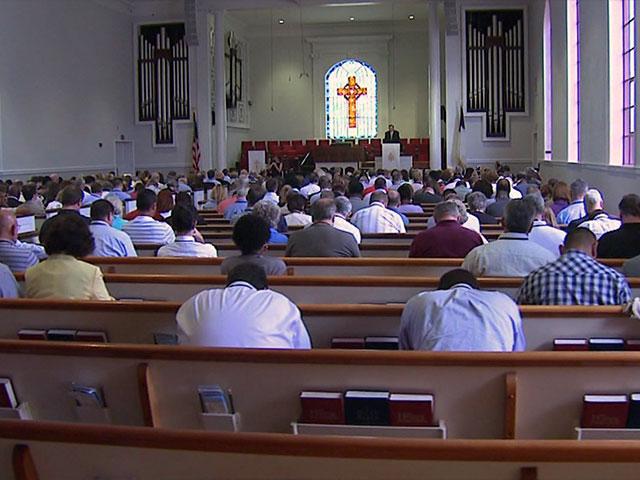What Form of Church Government Is the Best?
The New Testament church had a central governing body of "apostles and elders" in Jerusalem, possibly modeled after the seventy-member Jewish Sanhedrin, whose primary task was the preservation of doctrine and practice. Churches were established by apostles chosen by God and recognized by the body of believers. The apostle Paul, and others of the apostles, ordained presbyters (elders) to preside over the church in each city or region.
Many scholars feel that the presbyter or teaching elder was the same as the episkopos (overseer or bishop). In the Jerusalem church and in the other churches, men were chosen who were "full of the Holy Spirit and wisdom," called deacons, who were placed by the apostles over the financial and other temporal concerns of the church in order to free the apostles for the ministry of the Word and prayer. Spiritual authority flowed from God, through the apostles, to the local bishops or elders, then to the people.
Spiritually, the early church was a theocracy, but in matters concerning money and property, the local assemblies appeared to be autonomous and more democratic, acting as they wished upon the advice and counsel of spiritual leaders.
Among the better known denominations today, the church government I feel most closely paralleling that of the New Testament is the Presbyterian. On the local level is the "session" consisting of the pastor, or teaching elder, and the ruling elders (see 1 Timothy 3:1-7, Titus 1:6-9, 1 Peter 5:2). These elders or presbyters are responsible for the spiritual life of the church. Along with them is the board of deacons. The deacons (see 1 Timothy 3:8-13) govern the temporal affairs of the church, including ministry to the poor, the needy, and the shut-ins (see Acts 6:1-4). The local congregation is self-governing; yet a regional group of elders from the local churches called "the presbytery" oversees the qualifications of ministers and serves as an appeals board for the local churches. On a national basis, the General Assembly deals with major issues and questions of creeds and doctrines, and it coordinates missionary, educational, and publishing programs.
Often lacking in this system, in practice if not in theory, are the offices established by Christ: apostle, prophet, teacher, pastor, and evangelist (see Ephesians 4:11-12). Nevertheless, this governmental form usually has an excellent balance between the autonomy of the local congregation and the supervision of denominational officials.
Other denominations, notably Baptists and most independent churches, have a congregational system of government. All authority is vested in the membership of the local congregation which, by democratic process, elects a governing body of deacons, calls a pastor, and usually has trustees to hold titles to property.
Although this form of church government gives maximum freedom to the members of the local congregation, it is handicapped by the absence of an effective appeals procedure in case of doctrinal disputes, financial disputes, or problems arising in pastoral relations. As a result, congregations can dominate the pastor, who should be God's servant. On the other hand, the people can either be dominated by a strong pastor or stuck with an unsatisfactory one. Without a true spirit of prayer and humility, the only remedy left in such a situation is a power struggle, a suit in a secular court, or a messy church split.
Another form of church government is the Episcopal, governed by an archbishop or presiding bishop and council of bishops. In the Roman church the papal system has developed in which great power is given to a pope who, in turn, appoints other church officials such as cardinals, archbishops, and bishops. These more autocratic forms of church government have the advantage of a great sense of historic continuity, plus the ability to mobilize coordinated resources and to control both purity of doctrine and the practice of the clergy. Because of concentration of power, the functioning of hierarchical forms of church government depends in large measure on the quality of their leaders. These churches can be led to great spiritual heights by the proper leaders, or they can be more easily corrupted by the wrong leaders.
Excerpt taken from Answers to 200 of Life's Most Probing Questions by Pat Robertson. Copyright 1984 by Pat Robertson.
Can God change your life?
God has made it possible for you to know Him and experience an amazing change in your own life. Discover how you can find peace with God. You can also send us your prayer requests.
We encourage users who wish to comment on our material to do so through our CBN Facebook page.






